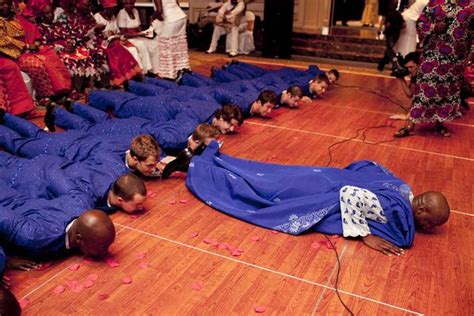In many cultures, prostration serves as a gesture of respect towards elders. While some may perceive the Yoruba ethnic group’s practice of bowing or prostrating to greet as excessive, it’s a custom shared by several other cultures worldwide. Here are some cultures that incorporate prostration or bowing into their greetings:
Yoruba Culture:
Respect is a fundamental aspect of Yoruba culture. Prostrating to greet, known as Idobale, translates to “meeting the earth” and is regarded as a demonstration of humility. In this culture, men typically bow to older individuals, while women kneel. Yoruba customs also underscore respect in greetings and conversations, employing specific pronouns like “e” for elders and “o” for peers of the same age.
Japan:
Japanese culture places a strong emphasis on respect and social hierarchy, often expressed through the traditional bowing gesture known as ojigi. This involves bowing at an angle of 15–30 degrees, often while kneeling or standing. Bowing in Japan can be categorized into zarei (kneeling bow) and ritsurei (standing bow). Failure to bow properly, with a straight back, may be perceived as laziness, insincerity, or disrespect.
South Korea:
South Korea’s Confucian tradition places great importance on showing respect based on factors such as age, family position, or occupation. Men commonly greet elders with bows or prostrations, while women often kneel. This respect is deeply ingrained in various aspects of Korean culture, including language, greetings, dining etiquette, and social interactions.
Vietnam:
While not as prevalent as in Japan or Korea, bowing is still used in Vietnam as a gesture of respect and reverence. It may occur during greetings at the family altar or when receiving blessings or gifts from elders, particularly during the Tet holiday.
Hawaii:
In ancient Hawaiian culture, a practice known as kapu moe involved prostrating before chiefs of high rank, known as nīʻaupiʻo or piʻo chiefs. Members of the community would prostrate themselves, except for chiefs of lower ranks, who were required to sit in the presence of higher-ranking chiefs.
